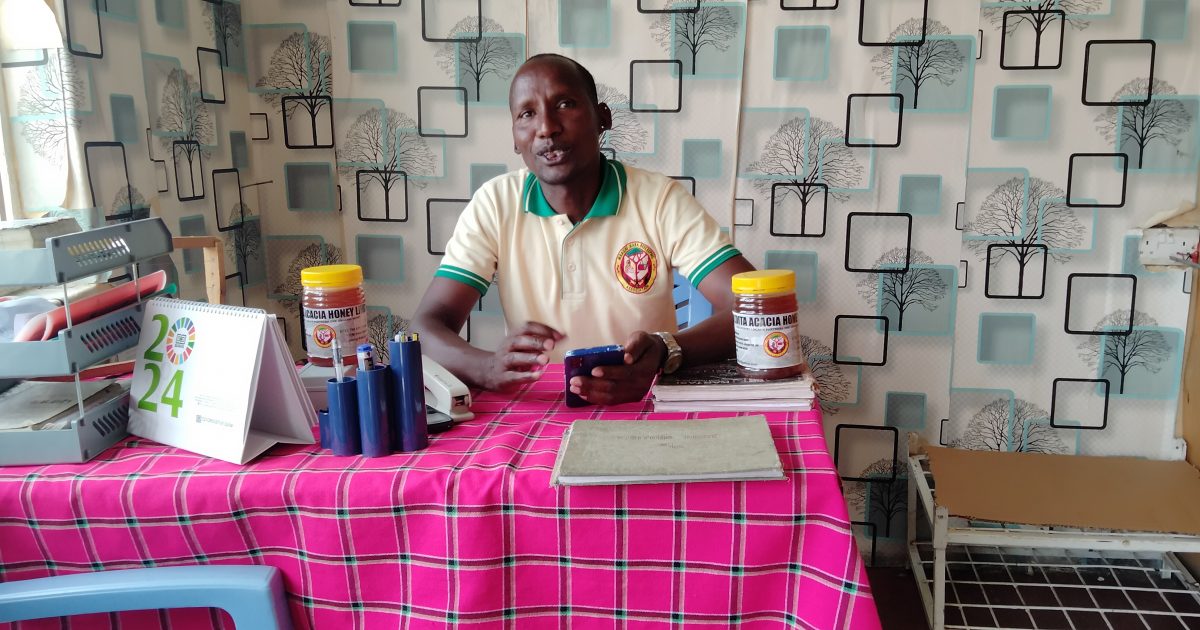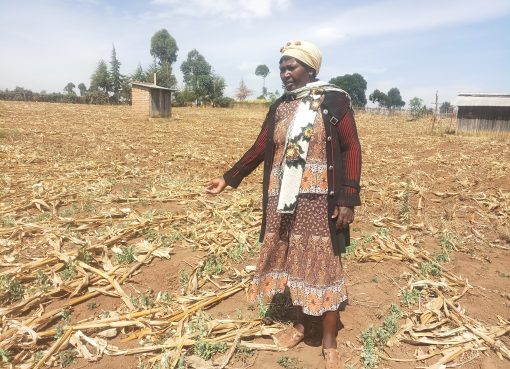John Morijoi, a bee farmer at Loita area in Narok South Sub County, is making a fortune from keeping the honey-making insects.
Speaking to KNA, the young farmer said he opted for the business as it requires very little capital to start and consumes very little time.
He says he has been in the business for eight years now and never regretted having ventured into it.
“For eight years now, I have been actively involved in the beekeeping business. I find it much better than other types of agri-businesses as it requires little time and space to keep,” he says.
According to Morijoi, bee farming is a simple venture if one decides to put a little effort into it as it requires only the attention of the farmer to know when the honey is ready for harvesting.
Apiculture as a business has helped Mr. Morijoi to sustain his family during these tough economic times.
“I am educating my children through the business. My family is living a decent life because of this business,” he reiterates.
On training other farmers interested in apiculture, Morijoi says that he has passed his knowledge to a number of other farmers especially those in self-help groups.
“Women are huge beneficiaries of apiculture. I have engaged women from different areas among them: Nchaishi, Enkiu, Elangata Enterit, Loita, and Olderekesi in Narok South. Many of them are happy doing the business and are able to improve their livelihood,” he says.
In order to boost his business, Morijoi has a registered company located along Narok-Nakuru Highway next to Noolomong’i House dubbed Loita Acacia Honey Limited, where he supplies his products to his customers, mostly of whom are the County Government officials and the elderly.
When asked about the prices, Morijoi says he sells his honey wholesale at a cost of Sh500 per liter of liquid honey but goes for Sh800 when sold in retail.
“I have many customers who will book my honey. Many buy at wholesale while others buy in retail. I maintain cleanliness to ensure my honey is of high quality,” he says.
He says that his honey company not only sells honey but also its by-products such as bee wax, royal jelly, bee venom, propolis, and pollen, each with its own use.
“For example, propolis is used to manufacture Tuberculosis drugs while bee wax is used to fashion dreadlocks in human hair,” he adds.
Apart from honey production, the farmer also makes and sells bee hives to willing persons at a fair price.
“I offer installation services to my customers who buy the bee hives from me. Sometimes I assist the farmer in harvesting for the first and second harvests,” he said.
He asked the County Government Department of Agriculture to offer training in apiculture and donate beehives to farmers who were willing to venture into the business.
“One major challenge that farmers are facing is lack of basic knowledge in apiculture. The government can take up that role and train farmers. They also need assistance in acquiring bee hives because traditional ones are not efficient,” Morijoi added.
Bees provide a vital pollination service to millions of acres of crops, improving sustainability and biodiversity hence they are vitally important to the sustainability of agriculture.
At least one-third of the human food supply from crops and plants depends on insect pollination, most of which is done by bees.
The farmer now urges Narok residents to venture into the bee-keeping business to improve their livelihood owing to the favourable climatic conditions- the arid and semi-arid zone that is suitable for the bees.
By Ann Salaton and Francis Merku




